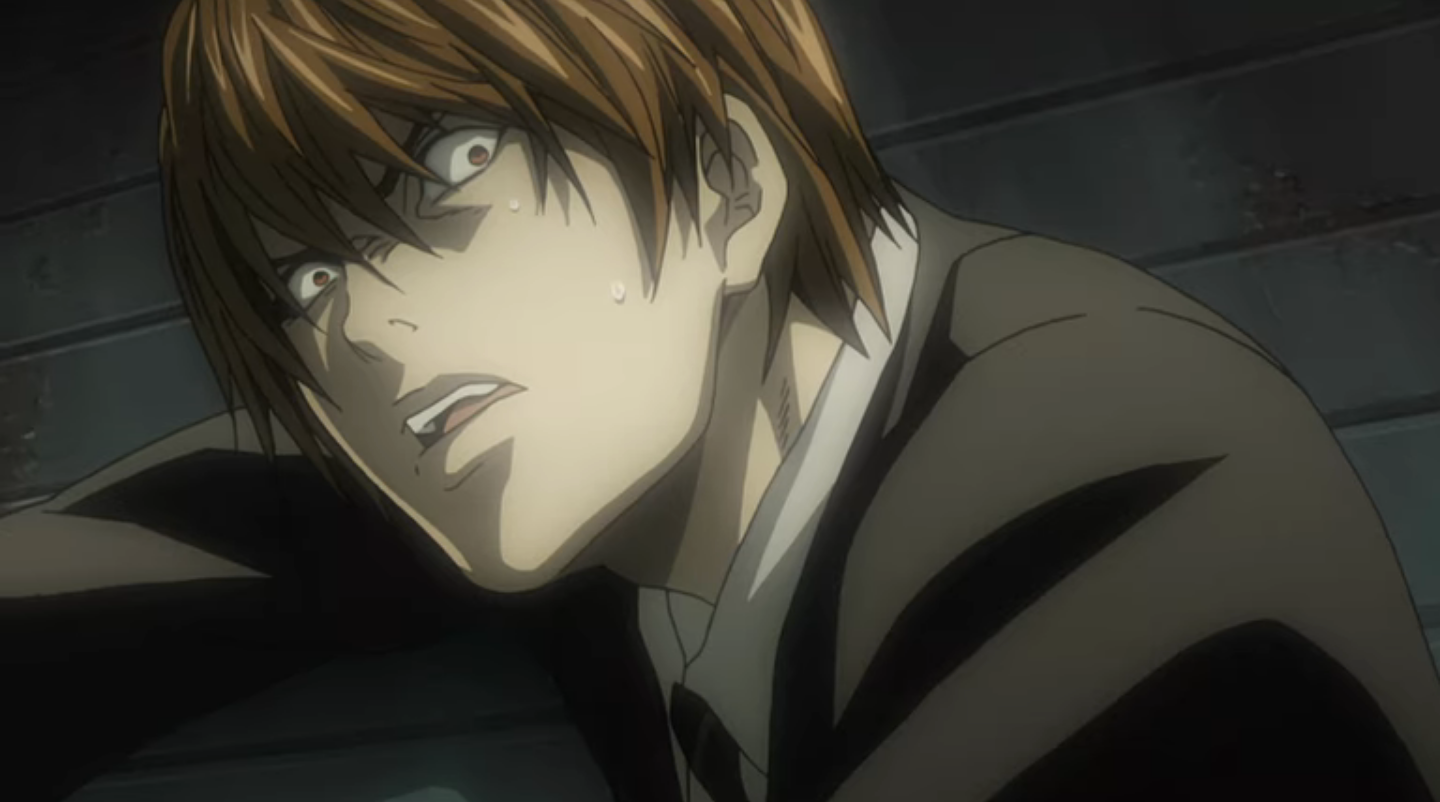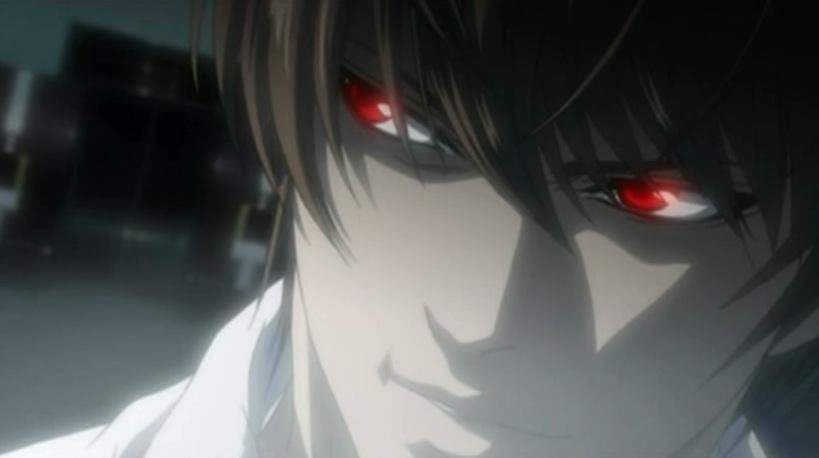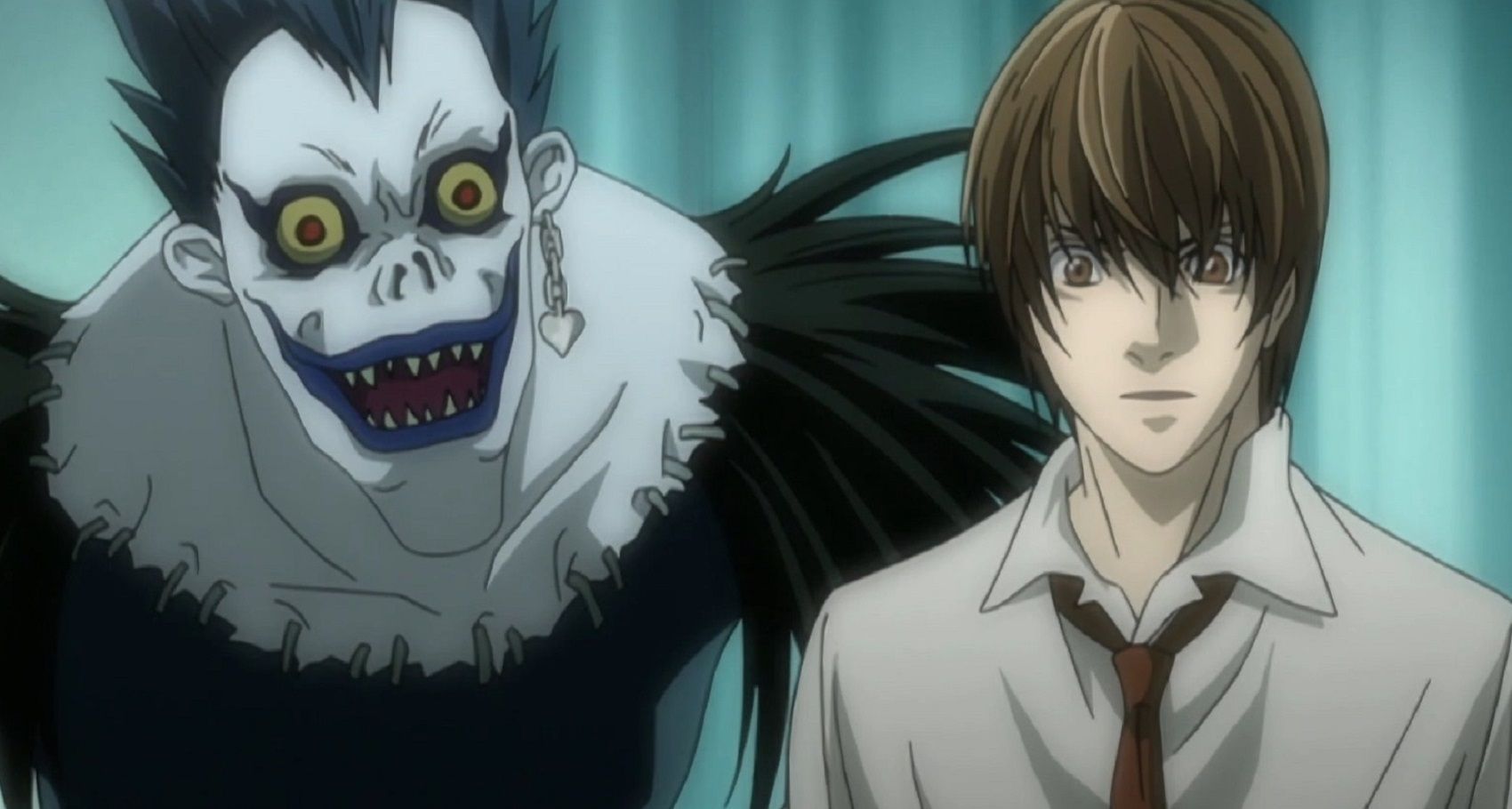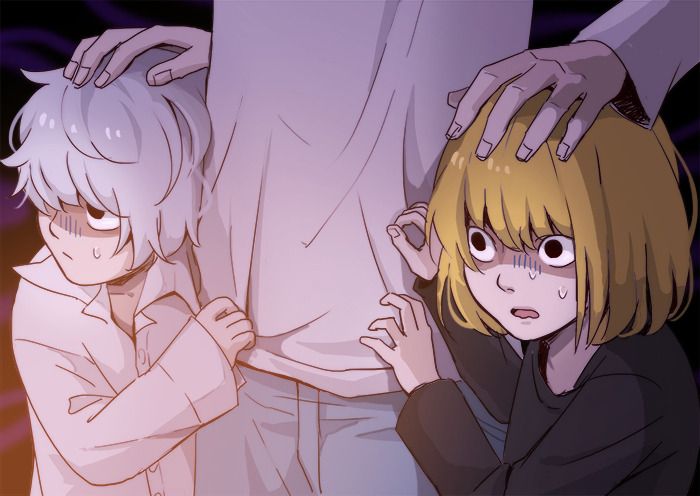Death Note is arguably one of the most loved and well-known animes ever made. Among all the ingenious interpretations of Tsugami Ohba's iconic manga masterpiece, including every enrapturing instant therein, none hit quite as hard as the ending of the epic TV show, which first aired on Adult Swim back in 2006. Whether it be religious connotations or deeper meanings, the show has gained a lot of street cred for being full to the brim with hidden symbolism, and in keeping with this overall theme throughout, the closing curtain, even years later, carries limitless food for thought.
Some fans may have been disappointed with the ending but everyone can agree it brought everything full circle. From the basics to the backbone of this cult classic's grand finale, here is the ending of Death Note explained.
Light Turns to the Dark Side: "Nothingness"
Despite Light's God-complex turning him into quite the monster in the end, it goes without saying that our lead luminary was not always so wicked and remorseless. After all, his mission did begin as an overall ploy to restore peace and prosperity. Over the course of the series, however, we see glimpses of Light's darker side shine through his calculated facade of deceptive charisma. As he slowly yet tragically transforms from hero to villain, his sinful transgressions gradually get more heinous, vile, and corrupt. A tell-tale sign of Light descending into darkness is when his eyes gleam red, as opposed to their natural brown radiance, and his laugh goes manic. The episode before the grand finale, entitled "1.28," perfectly exemplifies just how much Light's level of power has corrupted his soul as Ryuk even seems to be afraid amidst him legendarily admitting to being "Kira" in a psychotic, scarlet-glaring frenzy. In this spine-chilling but mesmerizing moment, it becomes clear that "Kira" is no longer an alias Light took on to protect himself from prosecution; he is "Kira." During his last stand against Near's operative, all signals point to the same proposition as he stands fronting the jury, screaming with pupils and lungs on fire just before he meets his demise. A final rule, which reads, "When they die, they go to Mu(Nothingness)," prohibits any user of the Death Note from passing onto either afterworld in their next life. Stuck in the middle of heaven and hell sounds an awful lot like the sentence served to Shinigami, meaning that in death, Light will be reborn as one and ideally join Ryuk in the realm of darkness.
After the finale premiere, many fans were left disappointed with Light’s unruly shift in demeanor, especially seeing as his character always kept a very calm, cool, and collected poise about him throughout the series up until then. In spite of his downfall being a true tragedy to behold— namely because even though Light does some pretty questionable things, his character is as compelling as the Shinigami who follows him finds him to be—there is a rather beautiful message behind it.
Even in Light’s darkest hour, it is pertinently important to note how high he had to go to reach such a low point; that his agenda, did, after all, begin a heroic prerogative to purge the world of evil. His downfall pertinently drives the central, overarching theme of Ohba’s narrative and contemporary culture alike; with great power comes great potential… to abuse it. Even the purest of hearts and intentions harbor the capacity to be corrupted by tyrannical greed if given the excessive room to. Light is a prime example.
The Master of Death Meets His Maker
Ryuk and Light render one of the closest relationships in the series but, though it tastes bitter-sweet to admit, they were never really friends. Ryuk reiterates his indifference and apathetic allegiance towards their companionship repeatedly but nothing sets his infidelity more in stone than the straw that broke the camel's back--or in this case; bond. Little did Light know it would be the same one that started it all.
During his first meeting with Light, Ryuk warned him of three inevitabilities, though all three go hand in hand with the misguided "God of the New World's" downfall and inevitable doom. While he finds his human companion curious, impressive, and entertaining, Ryuk actually shares no interest or loyalty to his life. He makes it eminently clear from the get-go that he is simply there for sheer observation and self-satisfaction. In alignment, he also, as all Shinigami do, has the abominable agency to kill off any user of his Note whenever he wants, for whatever reason he sees fit. Lastly, following suit with iconic foreshadowing, Ryuk makes a promise to his new affiliate, which inevitably sets up his ultimate betrayal, telling him that he will be the god to deal Light's card of death when his time calls for him. In the fullness of the terminal fight between Kira and Near, Ryuk stuck true to his word in doing exactly that.: writing Light's name in his own Death Note.
Light likely never realized the weight of his Shinigami chaperone's introductory warning until it was too late; however, his destiny to die by the cause of his creator was written from the very start. Aligning the same reason "Death Note" has received such special praise for procuring groundbreaking anime, the strongest sense of this takeaway is encoded in symbolism.
Although creative genius Tsugami Ohba has outspokenly debunked the theory, Ryuk’s love for apples is popularly considered a metaphor for the biblical allegory of Adam and Eve, still believed by the most commonly practiced religions in the world to be mankind’s “Original Sin.” Apples are Ryuk’s favorite food but on a much deeper level, they represent objects of temptation and sin for his Shinigami kind, as the Forbidden Fruit was in the Garden of Eden, as the Death Note becomes for Light from the very first moment he feels its power in his palms. Demise delt by the hand of the very God who gifted him sovereignty, carved with the same tool he used to exact it, Light falls victim to the very source of his hell-sent successes, to the evil he has become, the very evil he swore to destroy upon receiving the Death Note.
L's Legacy Lives On to Win the Fight Against "Kira"
A few years after L's tragic defeat by "Kira," two new successors, born and bred within the walls of "Wammy House," are brought forth to fill his king-size shoes; Mello and Near. Tensions--mostly from Mello's side-- rise in reaction to L's failure to elect one over the other prior to his exodus, thus making for extreme discrepancies and competitiveness between them. While L might not have lived to tell the tale, his spirit prevails through each of these characters, not only in Mello's off-putting obsession and Near's off-brand imitation but also in their equally unwavering, yet expressively different devotion to his vendetta until it is won.
When Near indirectly delivers Kira's fatal blow, he is elected as the replacement L of the "New World" and as much as Mellow might have liked to deny it, he also personifies a closer comparison to their prodigious predecessor. While they are completely opposite in outward composure and appearance, their super-genius IQ levels, combined with a quirky anti-social personality disorder is a "near" identical match made in heaven. In view of his ill temperament, inferiority complex, and try-hard attitude gaining the wrong kind of attention, Mello is certainly down double but he is not at a complete loss. He may not hold the crown for "The Third L," but he certainly lent a helping hand in Near's securing of it. Without Mello's cunning craft and vital support, Near even admits his plan never would have succeeded in bringing Light to justice during his final showdown with Mikami. Regardless of their rivalry, both descendants did a brilliant job not only avenging L's murder but also keeping his memory and dream for a "Kira" free world alive. Touta Matsuda, a cheeky member of the investigation team who goes from comedic sidekick to a recurring central role in the anime, even pays tribute to L's honor by mentioning his name during Light's terminal hour of defeat.




